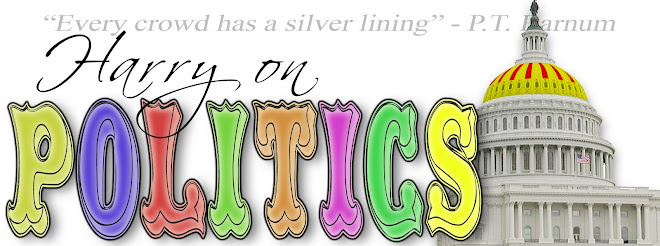I'm pretty well sick of government in general and politicians in particular. I ain't alone. There are lots of reasons, but the one that gets me is the corruption that is tolerated as normal business for Washington.
What do I mean by corruption? Most Americans imagine backdoor deals and envelopes filled with cash. There's certainly enough of that (right Spiro?). But I mean more of the regular sort taken beyond the pale by the likes of Rod Blagoevich.
Blago tried to use his position and influence to enrich himself personally - not with cash, but with power. Even though disgusting, what he did was somewhat common; but he went to extremes, and was stupid in his being overt in his actions. But being so overt means one thing: He didn't fear any repercussions if he was caught; it's just the way he knew politics is conducted.
Would it be shocking to consider that the same is true in national politics (Blago was using a US Senate seat, after all)? Enter what the left likes to call "special interests." There are enough of those to go around on all political sides many times over, but why do we tolerate it? Why don't we see it in the same light as Blagoevich, as the corruption that it actually is?
It's clear how the mechanics of this type of corruption work: one interest uses it's power (money, position, whatever) to put in office it's "guy," who then effects all sorts of laws tailored to benefit that interest. As an example, look at the AFL-CIO; they donate heavily to a lawmaker's campaign, and push it's members to do likewise. They say it's in their long term interest. Millions of dollars in campaign donations fall from heaven, and then at some decent interval post-election, the union's lawmaker acts on the behalf of "labor" (they always try to elevate their corruption using general terms like that), and the subterfuge is complete. The union guys themselves even are fooled by it, deluded by union propaganda into thinking it's good for the country, when in reality the only people it benefits are the union leaders (they get to keep their jobs with enormous salaries), and the politicians (re-elected based on the ruse that they are acting on behalf of "the little guy").
A specific example: CardCheck, designed by the unions to enlarge their base, and pushed by the Democratic party who was put in power by the unions.
And the question remains: why can't we see this as corruption? It's because we are desensitized to it, and come to accept it as the way of Politics. But it shouldn't be. It doesn't have to be.
In evaluating legal ethics and best practices, there is the notion of recusal: if one is too close to an issue, they remove themself from any decision-making part of the issue that might taint it with a conflict of interest. The Supreme Court does it. Judges do it. But it seems to stop there - because in politics, there are no repercussions.
My answer in Harryland: I'd love to see a law where a politician was forced to recuse himself from any action of any kind on any matter involving anyone who donates money to him or his campaign. Can you imagine? It would be honorable, but I suspect that nothing would get done - much like it is now. The Senate, for certain, would never reach a quorum. However, at least it would be moral, and probably cost taxpayers a lot less, too. It might not fix the problem entirely, either - other lawmakers voting on behalf of their pals is one way they might work around it. But that, too, could be made illegal. Then we ask: Do we have enough jail space? Or would they just vote for better jails for themselves? That, I'd vote for!
I don't think the world will end any time soon because of corruption. However, this idea of politicians not voting for their political donors might cause the earth to explode.
hd
Subscribe to:
Post Comments (Atom)


No comments:
Post a Comment